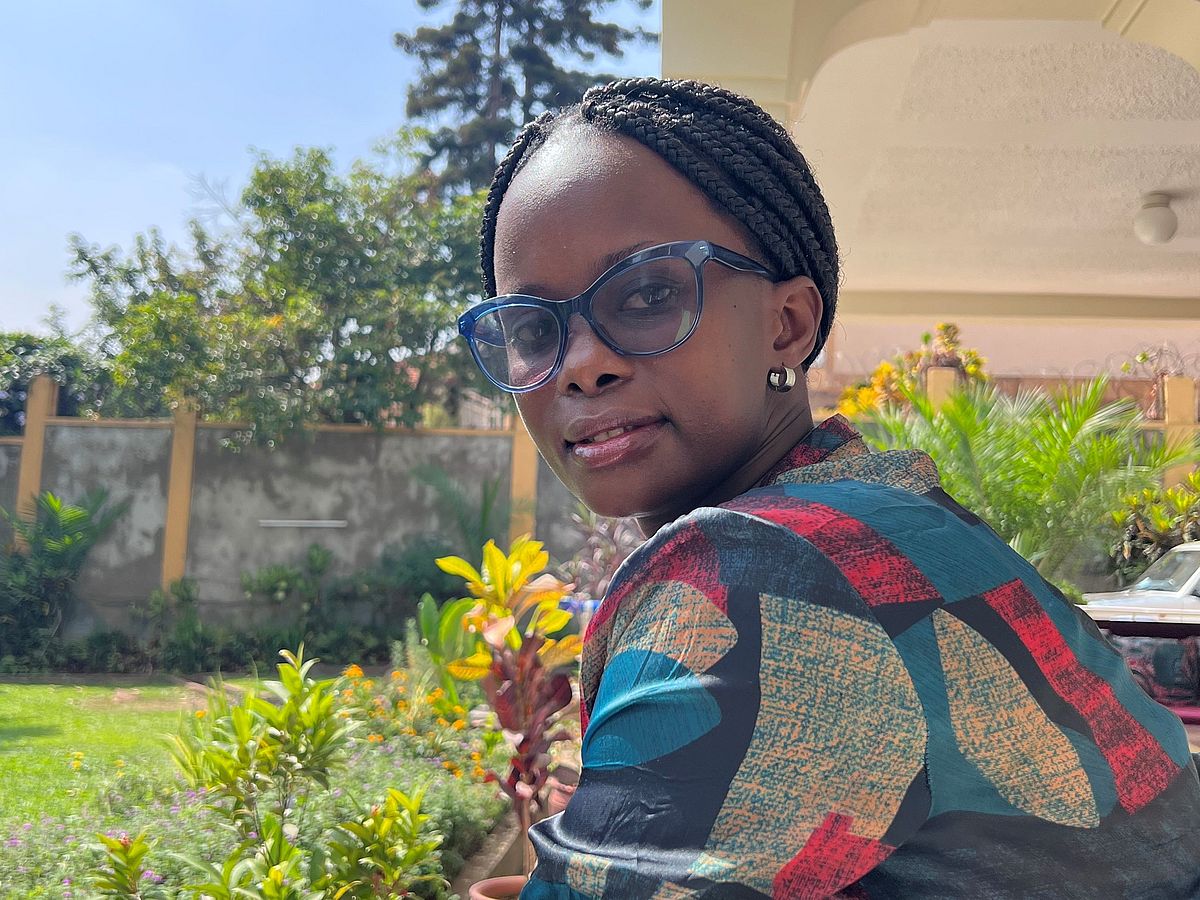An espresso with…Mary Namukose

Mary Namukose was the first student from Uganda to complete the master's programme in International Studies in Aquatic Tropical Ecology (ISATEC) at the University of Bremen, from 2012 to 2014. Today, the mother of a two-year-old daughter lives in the Ugandan capital Kampala and works there as a technical advisor for the German international development agency GIZ.
Why did you decide to study in Germany?
I love being a scientist and after my bachelor's degree in environmental science, I unfortunately could not continue my studies here in Uganda due to financial reasons. A friend of mine who was studying in Freiburg told me about DAAD scholarships. I applied right away to DAAD (German Academic Exchange Service) and got a scholarship. I also had other friends who had already studied in Germany, and they told me only good things about the transport system and the first-rate technology.
How did you end up at the University of Bremen?
It was a very conscious decision for this particular ISATEC programme. I had previously worked for two years in Uganda at the National Fisheries Resources Research Institute and I wanted to gain further qualifications in the field of water resources. For me, the close connection of this degree programme to the Leibniz Centre for Tropical Marine Research (ZMT) was a big plus, the access to the large international network of ZMT researchers and the good mix of theory and practical work in the excellent labs there.
Having a place at university doesn't automatically mean that you can travel to Germany. What was that like for you?
That's right. But in my case it wasn't that complicated. Once I had been accepted for my scholarship and had the insurance and all the other papers together, the German embassy issued my visa. DAAD's offer of a three-month online German course was very helpful. For me, it was my first trip abroad. I read a lot about Germany and just focused on the positives.
Did these positive expectations match reality when you arrived in Bremen?
When I came to Bremen, for the first two weeks I didn't have a place in the student dormitory. Because I also didn't have much money, I went on Couchsurfing and found Stefanie, who wanted to go on holiday to Italy for two weeks. What I experienced then was unbelievable: Her parents picked me up at the airport, she let me have her whole flat, without payment. Here in Uganda that would be unthinkable, with someone you don't know. Her parents took care of me like a daughter. I am still in contact with them, they are my second family. And at university we had a student tutor who helped us with everything we needed. So for me, the beginning here in Bremen was very easy.
What were the most formative experiences for you in the city and at the university?
What I like about Bremen is that it's a rather small city, but it has almost everything you need. That's why it’s very easy to manage there. As a science centre, Universum fascinated me. And I saw snow for the first time in my life. It was so great, everything was powdered white. The university was brilliant, with its modern facilities and the wonderful library. I loved the Mensa and the food there. There was always something going on, never a dull moment. Those two years flew by.
What have you taken from your studies in Bremen to your job today?
In those two years I was able to expand my professional network, not only in Germany, but also in other East African countries like Kenya and Tanzania. I am still in close contact with scientists there. During my studies, the semester I spent on the Tanzanian island of Zanzibar was very valuable for me. And even though studying in Germany is not a prerequisite for working at GIZ, it still helped me to get my job here.
What advice can you pass along to students who want to study in Bremen?
It is very important to know exactly why you are going to university. Especially in Europe, young people often take it for granted that they’ll go to university, but they may not know exactly why. To be honest, it sometimes really bothered me when people said: Why are you going back to Uganda? Why don't you stay in Germany? For me, it was quite clear from the start that I was in Germany to learn, to get further qualified as a scientist, and then come back home so I could apply my knowledge here in Uganda. I took every opportunity to learn and develop contacts, to talk to professors, to other students, every chance I got. That is really important.



